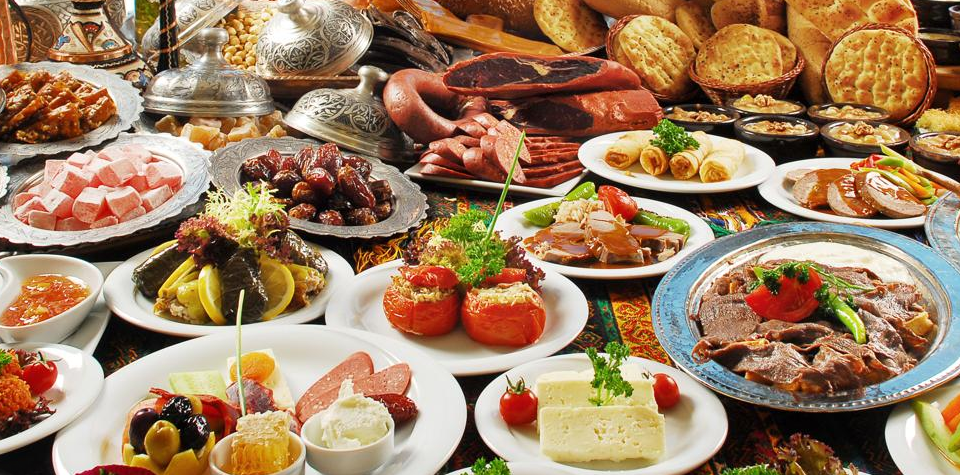
Secret of Turkish cuisine: culinary treasure trove
Turkish cuisine, one of the most diverse and rich gastronomies in the world, is a blend of historical influences, regional ingredients, and cultural traditions that have evolved over centuries. The secret of the Turkish kitchen lies not only in its delicious and varied dishes but also in its philosophy of hospitality, generosity, and communal dining. This article will explore the key elements that make Turkish cuisine uniquely special, uncovering the secrets that make it a beloved choice for food enthusiasts around the globe, CE Report reports.
A Rich Historical Tapestry
The roots of Turkish cuisine can be traced back to Central Asia, where nomadic tribes relied on earthy flavors, meats, and hearty grains. As the Ottoman Empire expanded, it absorbed culinary influences from the Balkans, the Middle East, and North Africa, blending spices, techniques, and ingredients to create a cuisine that is both diverse and intricate. The secret of this culinary evolution lies in its global influences, where each region contributed its unique flavors and cooking methods.
Seasonal and Regional Ingredients
At the heart of Turkish cooking is a deep respect for seasonal and local ingredients. From the sun-kissed Mediterranean coast to the fertile plains of Anatolia, Turkish chefs and home cooks alike prioritize fresh produce, grains, and proteins. Dishes such as meze—an assortment of appetizers—are often made with seasonal vegetables, olives, and pulses, reflecting the best each season has to offer. This attention to freshness not only enhances flavors but also emphasizes a sustainable approach to cooking, rooted in the ever-changing bounty of nature.
The Art of Spices
While Turkish cuisine is known for its bold and vibrant flavors, the use of spices is often more subtle than one might expect. Common spices include cumin, paprika, sumac, and allspice, which lend depth and warmth to dishes without overpowering the primary ingredients. The secret here lies in balance; Turkish cooks skillfully layer flavors, allowing spices to enhance rather than dominate. The result is a symphony of taste that is both satisfying and intriguing.
The Role of Cooking Techniques
Turkish culinary traditions feature a variety of cooking methods, from grilling and roasting to stewing and baking. One of the most iconic techniques is the use of a tandoor oven, which imparts a unique smokiness to meats and breads. The preparation of dishes like kebabs and pide (Turkish flatbread) showcases the mastery of fire and charcoal.
Additionally, slow-cooked dishes, such as tandır (slow-roasted lamb) or various stews, highlight another secret of the Turkish kitchen: the importance of time and patience in cooking. These techniques allow flavors to meld and develop deeply, creating comforting and hearty meals that are often shared with family and friends.
A Culture of Sharing
In Turkey, food is not merely fuel; it is a vital part of social life and community. Meals are often enjoyed as shared experiences, bringing together family and friends around a table laden with various dishes. The concept of “sofra,” or dining table, embodies the essence of Turkish hospitality, where the act of serving and sharing food symbolizes love and connection.
This communal aspect is also reflected in the variety of dishes served during a meal. A typical Turkish dinner might consist of several meze dishes, followed by a main course and, of course, a selection of desserts like baklava or künefe. Such a meal encourages conversation, laughter, and connection, underlining the idea that food tastes better when it is shared.
The Sweet Finish
No exploration of the Turkish kitchen would be complete without mentioning its divine desserts. One secret of Turkish cuisine is its mastery of sweetness, often achieved through the skillful use of nuts, syrup, and aromatic spices. Desserts such as baklava, a layered pastry filled with nuts and sweetened with honey or syrup, showcase the artistry of Turkish sweets. Another beloved treat, Turkish delight (lokum), represents a world of flavors and textures, offering a delightful end to any meal.
Conclusion
The secret of the Turkish kitchen is not simply in its recipes or techniques, but in the cultural values embedded within its culinary practices. It is a cuisine that celebrates community, embraces diversity, and prioritizes quality ingredients. As we explore the rich tapestry of flavors, the lessons of patience, balance, and generosity become clear. Whether enjoyed in a bustling Istanbul restaurant or at a cozy home gathering, Turkish food offers more than just nourishment—it offers an experience filled with warmth, connection, and joy.
























